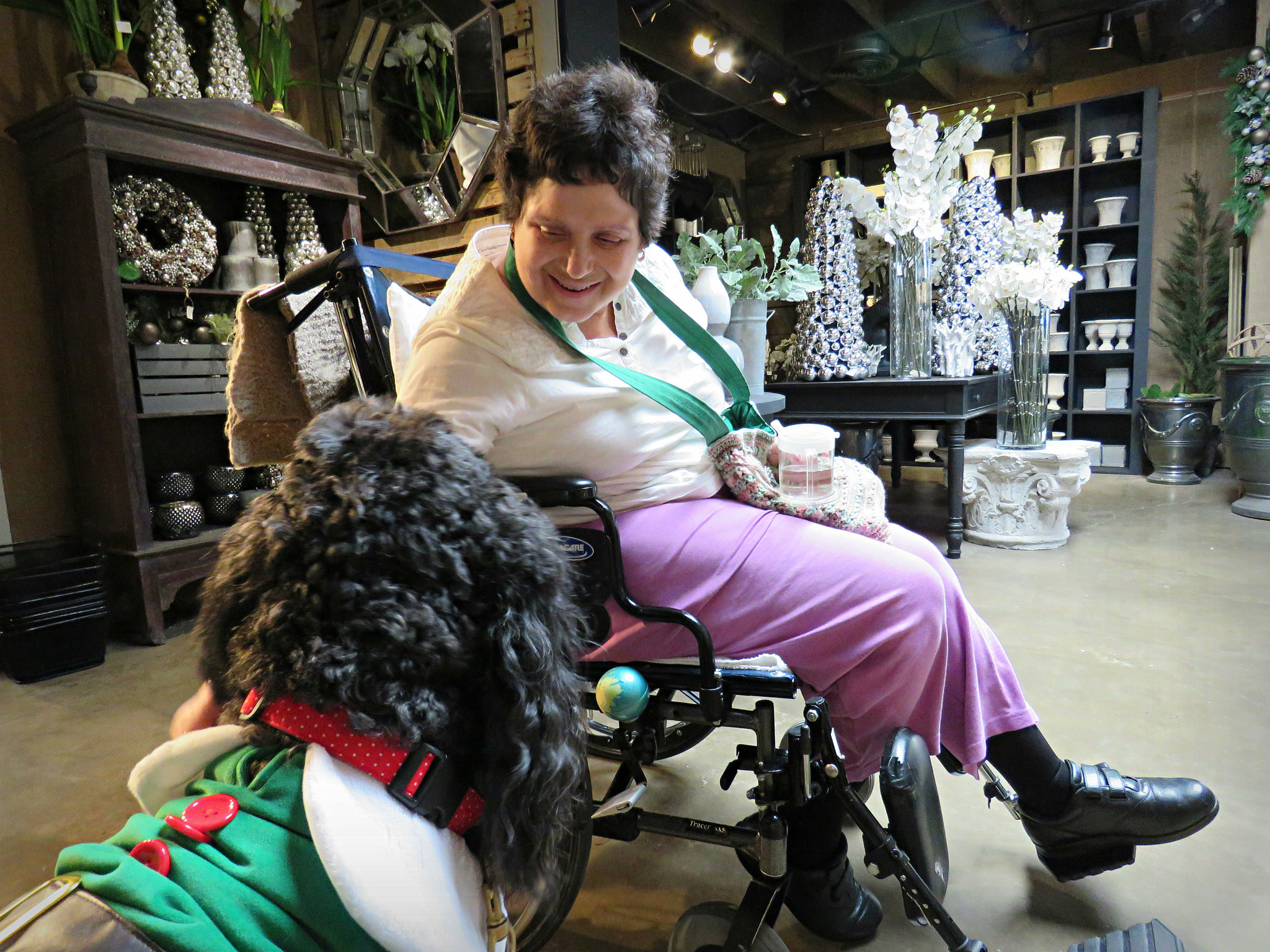It’s a weird thing, when somebody grabs you unexpectedly and insists that they are helping. It is intrusive and invasive, and yet visibly disabled people experience this on a regular basis from apparently well-meaning strangers.
It was why Dr Amy Kavanagh tweeted about how she, as a visually impaired person, is “touched, grabbed or pulled without my consent” on a daily basis, using the hashtag #JustAskDontGrab on Twitter. Tales and pleas from other disabled people, using the same hashtag, quickly flooded in.
I remember once I had braved a trip out to the city centre following a period of snow that had kept me housebound because my mobility is wonky at the best of times. On arriving in town, there was more ice on the ground than I was really prepared for and I was just about managing when a man – completely unknown to me – grabbed me from behind by the shoulders to “help” me onto the bus.
Similarly, a man grabbed both my arms in the entrance to the supermarket when he saw my crutches and guided (pushed) me into the shop, as if I didn’t know where I was going. People try and take things off me that I am carrying, throwing my balance off completely, yet they do it so insistently that when you complain, you look like you are in the wrong.
“I was only trying to help!” is the usual response, and disabled people are sick of hearing it.
The fact is that, as well as being rude and invasive, grabbing a disabled person – or their mobility equipment – is actively dangerous. The disabled person whose wheelchair you “helpfully” bounce down a kerb might have brittle bones, the jolt causing them serious damage. The blind person who you “helpfully” march across a busy road may be lost and confused away from a familiar route. The disabled person whose walking stick you “helpfully” grab may fall and injure themselves. And the visibly disabled person you “helpfully” guide who also has unrelated PTSD may react with flailing arms, causing danger to you as well as themselves.
“I was only trying to help!” pleads the grabber. Offended that the person who just broke an ankle because they grabbed them is complaining about their intervention.
“I was only trying to help.”
So how can you actually help?
The first rule of actually helping is that you don’t grab anybody unexpectedly. Disabled, pregnant, female… just stop grabbing strangers. It is rude, it is intrusive, and it is dangerous. You may well be assaulting them rather than helping, and there is nothing you can achieve from grabbing them right now that you can’t achieve by first asking them what they need.
That leads nicely to the second rule of actually helping: ask. If you think a visually impaired person needs help to cross the road, ask them if they need help to cross the road. If you think that a person using crutches needs help to find the entrance to Tesco, ask them if they need help to find the entrance to Tesco. You get the picture.
Does that guy look like he needs help reaching something on a high shelf from his wheelchair? Ask him if you can help, don’t just add food to his trolley (you’d be amazed that this does actually happen). Do I look like I’ve fallen down but I might actually just be having a rest, sitting down on the floor because there are no seats? Just ask me if I’m ok, don’t try and pull me up when I’m not yet ready to stand.
And remember that, if we turn down your help, we are not being ungrateful. We just don’t need something off that shelf this time, or we don’t need to cross the road right now. We are not trying to offend your kind offer or reject your helpfulness.
We just have stuff to do and that doesn’t include taking a diversion from our planned route to spare your feelings.
The third rule of actually helping is to remember that our personal space is important to us, and you should consider our mobility equipment to be an extension of our bodies. It is absolutely, unequivocally wrong to lean on a stranger’s wheelchair on the tube, and it is unquestionably wrong to get hold of somebody’s zimmer framer or walker just because you need a rest. Let go of my crutches or I’ll fall over. Seriously.
Latest craft project: anti being-grabbed-by-abled-people spikes for @AutistLiam's wheelchair pic.twitter.com/bTWLErcNmf
— fat femme fatigued (@JohnLZHC) July 4, 2018
When you see two people on Twitter have gone so far as to add spikes to their wheelchair handles, you can see that the problem of being grabbed, guided and pushed by strangers has gone too far. And while there is inherent misogyny in the usual ways strangers grab women in the street, where disabled people are concerned, men are grabbed too. They gain a depressing clarity on being marginalised when they are manhandled, while disabled women are doubly disadvantaged as both women and disabled.
The #JustAskDontGrab hashtag makes for enlightening reading for anybody unfamiliar with this intrusion, while disabled people are finding a voice to express just how bad it really is. If you find what I’m saying hard to believe, check out other people’s words, and start to accept that we are speaking the truth, and that you might have to look at your own behaviour to keep disabled people safe.
Photo: Bennilover/Creative Commons

